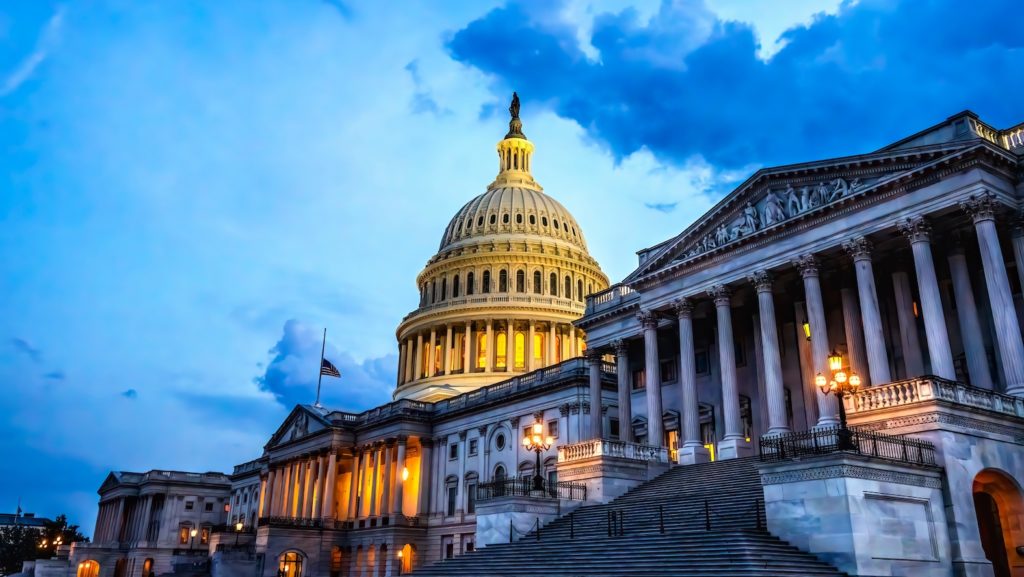A proposed House budget is drawing fire from some critics over its cuts to Medicaid, while drawing praise from others for promises to eliminate funds to health providers who also perform abortions.
In a letter to Energy and Commerce Committee Chair Brett Guthrie, R-Ky., the Congressional Budget Office, or CBO, said the committee's reconciliation recommendations, released May 11, would reduce deficits by more than $880 billion by 2034 and "would not increase on-budget deficits in any year after 2034."
The committee's recommendations for what President Donald Trump refers to as his "big, beautiful bill" -- which would enact key provisions of his legislative agenda on tax and immigration policy -- include steep cuts to Medicaid, a joint federal and state health insurance program for low-income and disabled Americans, as part of an effort to reduce federal spending.
Guthrie argued in an opinion piece for the Wall Street Journal that the recommendations, if implemented, "strengthens Medicaid" by reducing wasteful spending.
"Without Republican solutions, Washington risks a complete collapse of Medicaid," he argued.
But Sister Mary Haddad, a member of the Sisters of Mercy of the Americas and president and CEO of Catholic Health Association of the United States said in a May 12 statement the organization is "deeply concerned" that the proposal "to overhaul Medicaid still includes harmful policies and hundreds of billions of dollars in cuts to the federal Medicaid program, threatening access to care for millions of Americans -- particularly those in underserved areas where our member systems work every single day to provide quality, compassionate care."
"Changes to work reporting requirements, provider tax, state directed payments, and retroactive coverage are among the concerning policies in this legislation," Sister Haddad said, pointing to CBO projections "that 8.6 million people will lose access to health insurance over the next decade as a result of this proposal."
"Congress has a moral obligation to consider the harm that such disastrous cuts would have on America's health safety net and the impacts this proposal would have for America's most vulnerable communities," Sister Haddad argued, adding that "cascading effects of lost coverage, including higher costs and greater strain on the system, will impact nearly all Americans -- not just those who rely on Medicaid."
"As we have continued to state: Medicaid is not just a health program -- it is a lifeline," she said. "It provides access to care for those who need it most -- poor and vulnerable children, pregnant women, elderly, adults, and disabled individuals in our nation while ensuring their dignity. Congress should not take America down a dangerous path of drastically reducing access to health care in the United States. We will continue to work with House Republicans and all federal lawmakers to ensure our health safety net remains intact so that our health systems can continue to provide vital care to American patients and families."
But some pro-life groups celebrated language in the committee proposal that would block entities that perform abortions from receiving Medicaid funds.
Although the text does not name Planned Parenthood specifically, Marjorie Dannenfelser, president of Susan B. Anthony Pro-Life America, a group that works to elect candidates who oppose abortion to public office, is among those pushing their congressional allies to strip federal funding from the nation's largest abortion provider in the process.
"It's time to stop forcing taxpayers to fund the Big Abortion industry," Dannenfelser argued in a May 12 statement. "Thanks to Speaker Johnson and Energy and Commerce Committee Chairman Brett Guthrie, this year's budget reconciliation bill contains the commonsense language to make that happen."
"Taxpayers should never be mandated to prop up an industry that profits from ending lives and harming women and girls," Dannenfelser said, pointing to Planned Parenthood's new annual report showing an increase in abortions and a decrease in cancer treatment and prevention services.
Supporters of allowing Planned Parenthood to receive Medicaid funds point to its cancer screening and prevention services, but critics argue the funds are fungible and could be used to facilitate abortion, despite prohibitions on tax funding for elective abortion procedures. Efforts to strip Planned Parenthood of public funds are sometimes referred to as "defunding."
"With this proposal, abortion opponents in Congress have declared they want working families to take on skyrocketing health care costs so they can give billionaires a tax break," Alexis McGill Johnson, president and CEO of Planned Parenthood Action Fund, argued in a May 11 statement. "Here is what 'defunding' Planned Parenthood and gutting Medicaid will mean: cancers will go undetected; it will be harder than ever to get birth control; the nation's STI (sexually transmitted infections) crisis will worsen; Planned Parenthood health centers will close, making it significantly harder to get abortion care; and people across the country will suffer -- all so the supremely wealthy can become even richer."
But Dannenfelser argued community health centers outnumber Planned Parenthood facilities, and they can "provide much more comprehensive care without performing abortions -- and because Medicaid dollars follow patients, they can continue to use Medicaid."
"Forcing Americans to fund the abortion industry is a gross abuse of our hard-earned tax dollars and it's unconscionable how long it has gone on," Dannenfelser said, calling it "a historic opportunity" to eliminate Planned Parenthood's federal funds.
However, a group of House Republicans have reportedly expressed opposition to eliminating Planned Parenthood's federal funding through the budget reconciliation process.
Abortion in the U.S. is heavily correlated with poverty and low incomes. The abortion research firm Guttmacher Institute reported 75% of women seeking abortion were low-income, with 50% below the federal poverty line. About six out of 10 women seeking abortion were already mothers. The top concerns reported included not being able to afford another child, losing the ability to work or continue education, or having to care for dependents or other family responsibilities.

